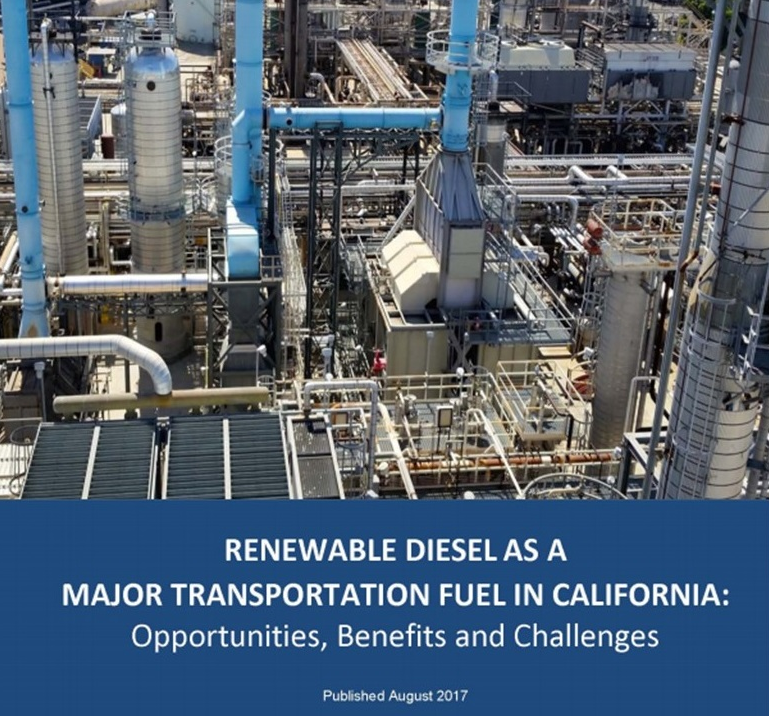In Brazil, we are faced with decisions that signal a clear setback to our National Biofuels Policy (RenovaBio), with the reduction of the minimum biodiesel blend to 10% (B10, when it should be B13). At the same time, we observed manifestations of entities and associations that defend the maintenance of the right to pollute more with fossil diesel.
It is in international news that I find the good news that confirms that the solution for the green future involves the adoption of biofuels.
We started with a new law in California, United States, which states that trucks and commercial vans stop using diesel by 2045
Anticipating this goal, a survey by the California Air Resources Board (Carb) indicates that combined with renewable diesel and biodiesel are, in fact, providing the best reductions in the sources of greenhouse gas (GHG) sources related to transport compared to potential of electric vehicles (Read more in the article “California Mathematics Shows Internal Combustion Outperforming Transmitted Electricity,” published in the CCJ newsletter aimed at road transport professionals).
Read more details about the advance of biofuels in the article “How Biodiesel Advances in the World”.
While entities in Brazil try to discredit our national heritage, international forums of associations advance in their activities that biodiesel stands out as a low-carbon solution to climate change. Industry leaders from the Renewable Energy Group and the National Biodiesel Council highlighted the significant opportunity for biofuels in a carbon-constrained future compared to electrification and other approaches.
In a virtual session on April 13, 2021 of the Diesel Technology Forum (educational association that represents diesel engine and equipment manufacturers, fuel suppliers and orders), the participants agreed that biodiesel is low cost, low carbon, but high impact on the reduction of greenhouse gases.
It’s a ready-made solution to combat climate change.
Ezra Finkin, moderator and session organizer, doesn’t leave me alone: “Today, more efficient diesel engines, combined with very low carbon biobased diesel resources such as renewable diesel and biodiesel, can do a lot to reduce the bases immediately,” he said.
For those who believe that electrification is the only strategy to reduce how to achieve greenhouse gases, this session provided important new perspectives on how to think about greenhouse gas reduction timelines and the broad adequacy of bio-based diesel tariffs for be used immediately in broad sectors of the economy.
And, through the discussion of case studies of public and private fleets in California, the forum debate demonstrated the proven success of biodiesel in real-world applications.
Electric vehicles also have their efficiency in relation to the emission of effect gases under analysis. According to the US Energy Information Administration, about 60% of the energy generated in the United States last year was derived from fossil fuel sources such as coal, oil, natural gas and other gases. Twenty percent came from nuclear sources and the remaining 20% from renewable sources.
The further progress is made in adopting electric trucks, the more emissions from these plants increase. In the end, there is no gain in reducing greenhouse gas emissions, but the concept of analysis and comparison of measuring emissions and sizing carbon footprints from the well to the wheels is not an issue in the current discussion in public opinion, which leads to the adoption of policies to encourage electric vehicles (I suggest reading my article “The solution of advanced biofuels as opposed to the use of electric cars”).
Biofuels score well in their profile from well to wheels because they are sourced from plant and animal matter. As I said here in another article (“Have you ever graduated from liquid solar energy in your car’s tank?”), Colin Huwyler, CEO of Optimus Technologies, biofuels are a form of solar energy, since soy plants used usados to produce the fuel they grow through photosynthesis that depends on the sun.
CARB estimates it has grown from about 16 million gallons of biodiesel in 2011 to nearly 1 billion gallons in 2020.
What appears to be a novelty in Brazil is already evident in the United States. According to research commissioned by the South Coast Air Quality Management District [check out the full study here), biodiesels are able to reduce greenhouse gas losses by more than 80%.
With a fleet of over 1 million diesel commercial vehicles on the roads in California, there is an even greater opportunity for additional short-term climate benefits from the absorption of bio-based diesel fuel.
The message heard in the main international discussion forums is that biodiesel is a “proven solution available today to reduce greenhouse gases is to expand the use of low carbon biofuels in all diesel engines and equipment – new and existing”.
As diesel is the main engine of key sectors of the economy, the use of low carbon fuels can change the game to reduce emissions from the transport sectors and equipment that are difficult to decarbonise.
In Brazil, investments in biodiesel production are expanding rapidly, which will define a strategy for greater access to low-carbon fuels throughout the country. There is an installed capacity that allows for service up to B18 today, and B20 until 2028, offering a product that has one of the most demanding quality parameters in the world.
We are on the eve of approving the regulation of advanced biofuels, Diesel Verde, which will certainly bring new investments for the production of HVO and SPK (aviation biokerosene), just as we are doing in Paraguay with the Omega Green biorefinery, with production expected to start. for 2024.
This entire strategy will allow more governments around the world and private fleets to have viable options to meet a long-term climate challenge.
May these findings echo in the ears of Brazilian sectors that still prefer to go against the grain of everything that the world has already recognized for a sustainable future.
The sector has positive environmental, social and macroeconomic externalities in relation to fossil diesel. What marked all this evolution so far was the dialogue. And here I reinforce this commitment to joint development, without battles based on false assumptions, for the benefit of the economy, but, in particular, of the entire Brazilian society.


1 comment
Señores: entusiasma y convence el enfoque multidisciplinario de los trabajos que realizan para incentivar la produccion y adopcion de combustible verde.Para el Paraguay y el mundo “el Proyecto OMEGA GREEN” brindara beneficios en lo economico, social y ambiental. Gracias y adelante !